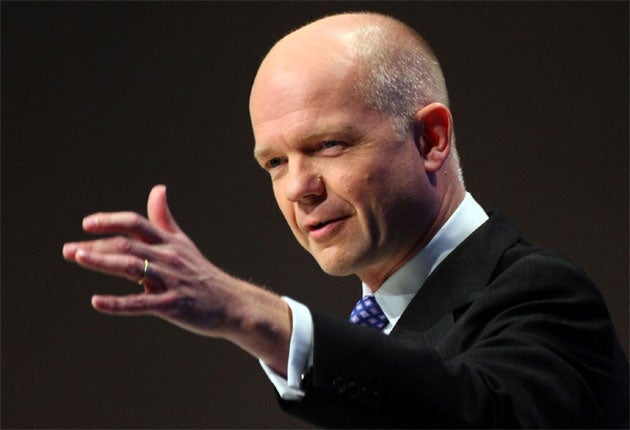Inside Whitehall: The Foreign Office has a new brief - flog Britain to overseas investors
Why do we need an expensive network of embassies around the world when public services are being cut at home?

Of all the Whitehall departments, the Foreign and Commonwealth Office is the grandest but perhaps the least understood.
Most people are pleased that it’s there. We think it’s a bit extravagant. But then we quite like the reassurance of knowing that a British face is present in whatever far-flung part of the world we might find ourselves in trouble.
But in an age when prime ministers like doing diplomacy themselves, its raison d’être is now less obvious. Why do we need an expensive network of embassies around the world when public services are being cut at home? And surely the very concept of an ambassador is a relic of a time gone by when kings or leaders would rarely meet and had to conduct business though permanent representatives abroad.
Now – to justify the FCO’s £1.5bn budget – the organisation that was once regarded as the Rolls Royce of the civil service is getting a much-needed overhaul.
Ambassadors have been told their job is changing and that first and foremost they need to be salesmen. Salesmen for the UK as a place for foreign governments, wealth funds and businesses to invest; salesmen for the UK as a tourist and educational destination; and, most importantly, salesmen with local knowledge, to help British businesses expand abroad.
As one senior politician put it: “The days when you could work in the Foreign Office and not understand or care about business are over. Ambassadors have been told that their job is as much about supporting British companies as it is about diplomacy.”
Also gone is the idea of the generalist diplomat – serving in postings around the world where they rather fancied living.
In September Mr Hague announced the opening of a new FCO language school. Every year the school will train 1,000 students in up to 80 different languages. And for diplomats it means one thing: you won’t get the job unless you speak the language.
It is also likely to result in civil servants staying in post longer, not moving from one part of the world to another, and developing detailed specialist knowledge of counties over decades rather than years.
That’s because the job of a 21st century ambassador, as now envisaged, is less about lecturing foreign countries about Britain and more about explaining foreign countries back home.
There is an understanding that Britain was unprepared for the Arab Spring in part because our embassies abroad were too centred on the political elites and representing British interests to them that we failed to spot the seismic shifts under the surface.
We did not have close contacts with the new leaders who emerged in Tunisia, Egypt, Libya and Syria and as a result we’ve had to play a game of catch-up. The “new diplomacy” is designed to address this.
But there is one sting in the tail with the changes – particularly for those who like the reassurance that our embassies are there to help us. Unless you’re a businessman, you’re unlikely to get much help nowadays from “our man in Havana”.
Budget cuts mean the FCO is rolling out a system of contact centres to filter out all non-urgent requests for help.
As a result four centres in Ottawa, Dubai, Hong Kong and Malaga will handle calls from every country in the world.
Or as the FCO’s director of consular affairs Charles Hay put it: “We want to get the message across that we are not a concierge service.”
Mind you, there might be money in that.

Join our commenting forum
Join thought-provoking conversations, follow other Independent readers and see their replies